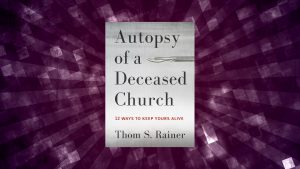
A few months ago I was talking to a fellow student at seminary about the ongoing debate over Calvinism and its relationship to evangelism. Last fall a conference was held in order to discuss this very question. As we talked, my friend told me that an evangelistic five point Calvinist is uncommon. Without doing in-depth research, it is hard to say if he is factually correct, but his view does reflect what I believe is a very common perception: a five point Calvinist cannot be evangelistic. The very phrase is an oxymoron!
Before addressing this perception, I must briefly explain what this all means. Five point Calvinists accept all five doctrines expressed in the acronym TULIP: Total depravity, Unconditional election, Limited atonement, Irresistible grace, and Perseverance of the saints. To be evangelistic means to support and strive to actively practice personal evangelism. For many, it is inconceivable that someone who believes in unconditional election, limited atonement, and irresistible grace can be evangelistic since the two seem incompatible.
How can anyone believe that Jesus died only for some yet say we should evangelize everyone? How can anyone believe that God sovereignly chose who would be saved and who would not and yet believe we should share the Gospel with the world? How can anyone believe that those who are elected for salvation will definitely be saved and yet say we should evangelize? They conclude that since God pre-ordained everything and all that he predestined will come about, evangelism is unnecessary. Also, since only some will be saved, it is a waste of time to evangelize.
Such questions are valid. There are some five point Calvinists who teach that evangelism is unnecessary precisely because of God’s sovereignty, election, predestination, and the irresistibility of grace; this is sometimes called hyper-Calvinism. Yet, there are some five point Calvinists who do support, advocate, and promote evangelism, e.g., John MacArthur, Al Mohler, and John Piper.
While I cannot speak for MacArthur, Mohler, and Piper, I will explain how I can be an evangelistic “five pointer.” Please note that I am not attempting to explain the nature of Calvinism or the TULIP nor to enter into a debate over their fidelity. Rather, I will attempt to show how evangelism and the TULIP are compatible.
Do You See What I See?
There are two keys to understanding how they coexist: perspective and knowledge. First I will address perspective. One must always remember that God and man have radically different perspectives. God sees the whole universe at once; man sees only what is in his visual range. God sees all time; man sees only the present moment. God understands all; man sometimes barely understands himself (Isa 55:8-9; Psalm 33:13-14). All this is to say that God’s perspective and man’s are not the same, but differ greatly.
When talking about Calvinism and the doctrines of predestination, election, the extent of the atonement, and the irresistibility of grace, one is discussing things from God’s perspective. God saw all the individuals, chose whom he would save, declared that they are elect, and since his plans cannot be thwarted, all the elect will surely be saved. As God looks at all of mankind, he can see who is saved and who is not; he sees who is elect and who is not.
Man, however, does not see these things. We do not know who it is God chose to save. We do not know if the person we encounter is elect or not merely by looking at them. The only time we become privy to this information is after the fact, either after they confess their faith in Christ alone, by which we know they are elect, or after they die without faith in Christ, by which we know they are not elect. Until then, we see only an individual who may or may not be elect, who may or may not accept Christ, who may or may not get into heaven. When we see someone, we see an individual who needs to hear the Gospel.
From our perspective there is a 50/50 chance the person we encounter may be elect, but a 100% chance that without Christ they will die in their sin. There is a 100% guarantee that if nobody shares the Gospel with them, they will not be saved (Rom 10:17).
A Calvinist can believe in all five tenants of the TULIP and still be evangelistic because man does not see what God sees. God sees everyone’s future, we only see their potential. We can share the Gospel with everyone and pray that they accept Jesus because we know that there is a chance they just might come to believe!
Do You Want to Know a Secret?
The second key to the compatibility of five point Calvinism and evangelism is knowledge. This flows directly out of the different perspectives. Because God sees all, he knows all; because we see very little, we know very little. God knows what has been, what is, and what will be; man only knows a little of what was, some of what is, and possibly a fraction of what might be (1 John 3:20). Furthermore, God does not tell us everything he sees, and rightly so!
As we live our lives, we do not know if someone is saved until we talk to them. We do not know if they will accept Christ and receive the new birth until we share the Gospel with them. Even if we witness to them and they reject Jesus at that moment, we still do not know if they will convert some time later. It is possible that the person who shares Jesus with them the next day will be the one who sees them convert.
Knowledge of an individual’s future cannot be obtained by looking at them. Not until they either die without Christ or accept him in faith do we obtain knowledge of their eternal future. In the meantime, we must act on what we do know: that person might come to faith and that can only occur if we evangelize them.
Evangelize Them All and Let God Sort It Out!
Whatever your theological disposition—Calvinist, Arminian, neither, you have no idea, or you don’t care—does not alter the mission of every believer to evangelize the world. However, it is possible to be a five point Calvinist and still be evangelistic. As a “five pointer,” I can say with confidence that I do not know if the next person I come across is a believer or an atheist. I do not know if they are elect or reprobate. What I do know is that I must share Jesus with them and give them an opportunity to respond.
Disciples of Jesus (which means everyone who believes in Jesus) should focus not a person’s electoral status, but on sharing the Gospel with everyone we can. It is our duty, our purpose, our joy to serve our Savior by participating in his evangelistic mission. We should be worried about our obedience to Christ and our faithfulness to him and let God worry about who is and who is not elect. We should focus on exalting Christ in every aspect of our lives—at home, at work, around friends, in school, on vacation, etc.—and not on whether the person is predestined for heaven or hell. I can promise you this: as you share the Gospel, all those who confess Christ and believe in him will be saved. If they don’t come to Christ after you share, don’t condemn them, but pray that God will bring that person to him. You never know, he just might!















This Post Has One Comment
Thanks for the article. It is always amazing to me that this question keeps popping up. If Calvinists didn’t evangelize they would be disobedient! After all, it is a very clear command.